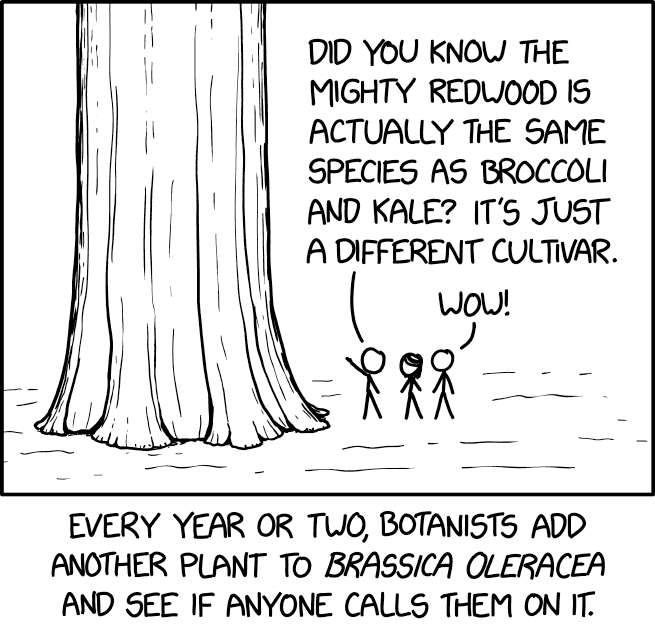this post was submitted on 23 Sep 2023
541 points (95.6% liked)
xkcd
9349 readers
152 users here now
A community for a webcomic of romance, sarcasm, math, and language.
founded 2 years ago
MODERATORS
you are viewing a single comment's thread
view the rest of the comments
view the rest of the comments

You could probably make an argument that we've still put some sort of evolutionary pressure on game animals and affected the course of their evolution, though definitely on a much smaller scale than with the animals we have deliberately bred.
One example is there's a mutation in African elephants that causes females to not have tusks, that gene has been around for a long time, there has pretty much always been some portion of female African elephants without tusks (Asian elephant females are usually tuskless or have very small tusks,) but because of ivory poaching we're seeing more of those tuskless females than in the past in a lot of populations, because the tuskless females have more opportunities to reproduce and pass on their genes since they're less likely to be targeted by poachers.
There are probably more examples, and a lot of them are probably a lot more subtle.
I debated on whether or not to list these, because the actual science to back them up is spotty at best, but I think they help to illustrate the kinds of effects we could potentially have on a non-domesticated species. Some people think deer antlers are shrinking due to hunting pressure, and that rattlesnakes have smaller rattles or rattle less than they used to because the ones that make a lot of noise are more likely to be noticed and killed by humans. Again the actual science to back those claims up is lacking, and even if they are happening, which isn't a given, there's a lot potential explanations like environmental factors that may be separate from evolutionary pressure.
I suppose the only one where the foodstuffs argument would kinda fit is the deer, but then people that eat them go for overall animal size as opposed to just the antlers.